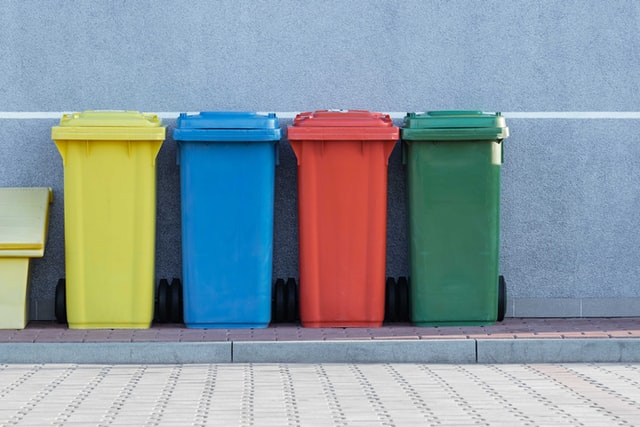In my journey to sustainability, I, obviously, decided to reduce my consumption of non-recyclable products. It seemed quite evident to me that products should not go to the trash. Nothing never goes really away right? It has to go somewhere. So I thought recycling was the way to go. As a newbie to the sustainable lifestyle you are more careful with your waste, hence try to buy things that can be recycled.
After nearly a year of changes, I realised that recycling is not the most sustainable option.
What is recycling?
Looking online, recycling looks like the perfect solution to waste. According to Cambridge University Dictionary recycling means sorting rubbish to create new and useful materials. This sounds like the perfect solution to save the waste issue that we are currently facing. Nevertheless, eventhough this is a good solution it stills require a lot of energy and work before being able to touch the final recycled product.
Is recycling sustainable?
There are 3 main processes to recycling:
- First part is the collection: everything is collected
- Second part is the process of recycling. This process uses resources and energy to cut, clean and transform the products to a new recycled material.
- Third part is the purchase of the new material. This is the last part which helps create a circular economy.
The method of recycling is different for every product: glass can be just melted again and recreated into a new product, cardboard needs to be shredded to extract the raw material, the fibre.
However, for all these things you need a lot of energy, water use and even chemicals need to be used sometimes/occaisionally. If we take a closer look at plastic, the process is quite complicated. First there are a lot of different types of plastics such as the poly(propene) also called PP and poly (ethene) also called PET, or even polyvinyl chloride also called PVC. All of the plastic you send to be recycled need to be sorted manually by trained staff.
Then this plastic is washed (use of water), shredded (use of electricity) and melted (heat and chemicals.
What can be recycled?
Here is a reminder of what can be recycled
https://www.lbhf.gov.uk/recycling-and-rubbish/recycling-home/what-can-and-cant-be-recycled
Here is more information on the logo you can look out for when recycling.
So should YOU recycle?
Today, cities made it easier for people to recycle with special bins. Yes, as a new sustainable warrior you should recycle and you should teach it to your kids as something normal. In fact if you teach it early in age, they will keep it and do it without realising the actual impact they have.
Recycling products is of course a lengthy process, with high water consumption and energy usage. If you can buy reusable or refillable bags or boxes or jars?!? Then do so. However, I understand that this is not feasible for everyone hence, if you have to buy it make sure it has the logo “recyclable” and is easy to wash. Even if recycling uses a lot of energy it still uses less than creating a full new product.


